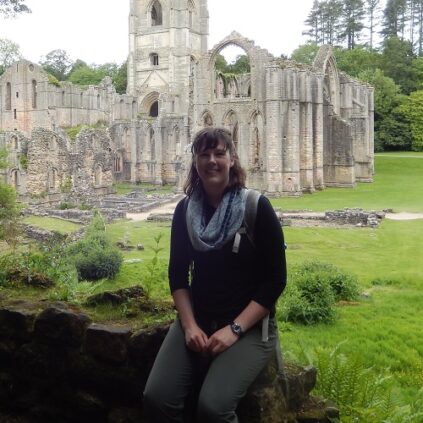Lydia Horne
Current position: Postdoctoral researcher at the University of Northern Colorado, Greeley, CO
Hometown: Holden, ME
Ph.D., Ecology and Environmental Sciences, 2020
Dissertation: “Fostering coastal destination resilience in Maine: Understanding climate change risks and behaviors” (available to download here)
Advisor: Sandra De Urioste-Stone
How did participating in the NRT program help prepare you for what you’re doing now?
The NRT gave me the opportunity to collaboratively lead a transdisciplinary research team from project conception through dissemination of results. At UNC, I’m working collaboratively with another transdisciplinary team on a much larger research project, but I feel confident and prepared as a result of my experience in the conservation science NRT at UMaine.
How would you describe the overall benefits of completing the NRT program?
I joined the NRT toward the end of my graduate student career. I thought the NRT program was especially beneficial to me in that it provided space to develop and implement an additional research project with people (students, faculty, and community partners) I had never worked with before. The NRT set me (and my team members) up with the space to take advantage of this opportunity. We really took advantage of this space and “ran with it” to create a new research project lead by a student team.
Do you have any words of advice for current or prospective NRT trainees?
You might feel that there are a lot of requirements and things to do in the NRT (that’s a fair assessment) but don’t be afraid to really go for it and seize opportunities that present themselves. A “side” project might end up being just as valuable as your main research project in the skills that you gain.

